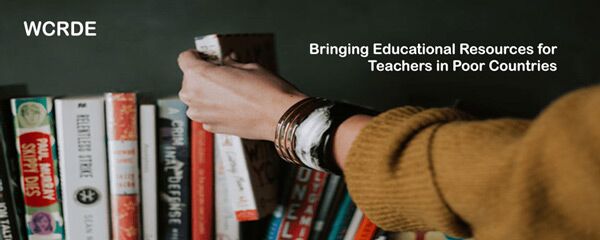
WCRDE Accreditate Universities (Physical) and Universities (Online).
Apply For AccreditationWCRDE Accreditate all type of Colleges and Training Institutes etc.,
Apply For AccreditationWCRDE Accreditate all type of Schools, Training and Coaching Centers etc.,
Apply For Accreditation
The WCRDE's Bringing Educational Resources for Teachers in Africa (BERTA) and Teacher Education in Sub-Saharan Africa, (TESSA) project aimed to provide teacher educators based in African higher education institutions with the opportunity to engage with examples of distance and eLearning courseware made available as Open Educational Resources in an activity-based way. African educators were invited to take part in a short, open online course to improve skills in learning design, IT for learning and creativity.
The course, which ran twice during 2016, was a product of the WCRDE BERTA and TESSA project and the Hands-On IT project. It was run by WCRDE Special Committee members. Thousands of people from more than 50 countries participated in the course. The first edition was delivered in the form of a pilot course in English followed by a second edition offered in seven languages including English, Spanish, French.
The course provided the following opportunities:
Learning how to design IT-based learning activities.
Working in small groups with educators from diverse backgrounds around the world.
Observing, practising and learning about methods for peer review and peer mentoring.
Activities that participants produced could be reused in their actual training plans.
Facilitators were experts in Open Distance Learning, Creativity and the Learning Design Studio.
The Research and Innovation Taskforce was established by WCRDE with the focus to:
Initiate a meta-study on the state of research and innovation in open, distance, flexible and online education, including e-learning
Identify the grand challenges of research in open, distance, flexible and online education, including e-learning
Encourage cooperation amongst WCRDE members on research and innovation; and
Advise the WCRDE Board Member on research and innovation issues.
Research and Innovation Special Committee - final report
The WCRDE Research and Innovation Special Committee conducted research in 2016 to better understand the state of research and innovation in open, distance, flexible and online education, including e-learning across WCRDE members. The Special Committee is led by Prof. Thiyagu Nagaraj, Registrar at International Non-Olympic University India.
This research was conducted in the form of a survey disseminated to WCRDE Board members in January to April 2016. Analysis of data demonstrated a number of trends as well as insight into next steps.
In concluding this stage of the research the following elements were reported:
That the respondents targeted for the survey was correct for their ability and knowledge of their institutions strategies.
That a wide range of educational institutions from within the WCRDE members responded, ensuring that the data was not skewed toward predominantly large or small institutions.
That resource is primarily provided centrally for innovation in learning and teaching however, however, predominately this equates to a low percentage of total spend across the institution.
Educational institutions highlighted that future research might focus on Massive Open Online Courses and Open Educational Resources. Although, flipped classrooms was a reoccurring theme which is in line with broader developments globally within the education sector. Quality issues remain a topic of concern.
According to respondents it was felt that learning analytics and blended learning would be of immediate concern over the next 6 months.
The most prevalent concerns in using new technology for teaching and research was a lack of knowledge about technologies and the corresponding fast pace of change along with adequate and appropriate professional development of staff.
Approximately 75% of respondents either disagreed or strongly disagreed that in ten years that there would only be a small group of global providers comprising of large brand universities and companies.
The split was fairly even with regards to whether the majority of teaching will be online in the next five years. However, 50% agreed and 10% strongly agreed that automated assessment and analytics will form at least half of the student feedback within ten years.
There was an acknowledgement towards the movement for increased inclusion of open content constituting to at least 60% of all courses within ten years.
Nearly 75% of respondents either agreed or strongly agreed that how education is delivered will substantially change over the next decade.
A strong and encouraging response of 95% was had from respondents wishing for further collaboration within the WCRDE and INOC network to undertake research, with 90% responding positively to publication and dissemination of this research.
Research and Innovation Speical Commmittee members
Prof. Thiyagu Nagaraj, The International Non-Olympic University (Chair)
Prof. Rakesh Pandey
Dr Khursheed Alam
The WCU higher education leader were awarded the WCRDE Prize of Excellence for outstanding achievements in online, open and flexible education.
The prize giving ceremony was led by WCRDE Director General Ms. Ummi Khanam, and held during the closing ceremony of the 5th WCRDE World Conference in Lucknow, India. The prizes were awarded by WCRDE President Prof.Dr. Mohammed Seraj ANSARI.
Dr. S.N. Singh
Head of the department for international projects at WCU was honoured for her academic leadership at regional, national and global level.
He has been involved in a wide array of international projects focusing on the role of WCU in advancing open and distance learning.









